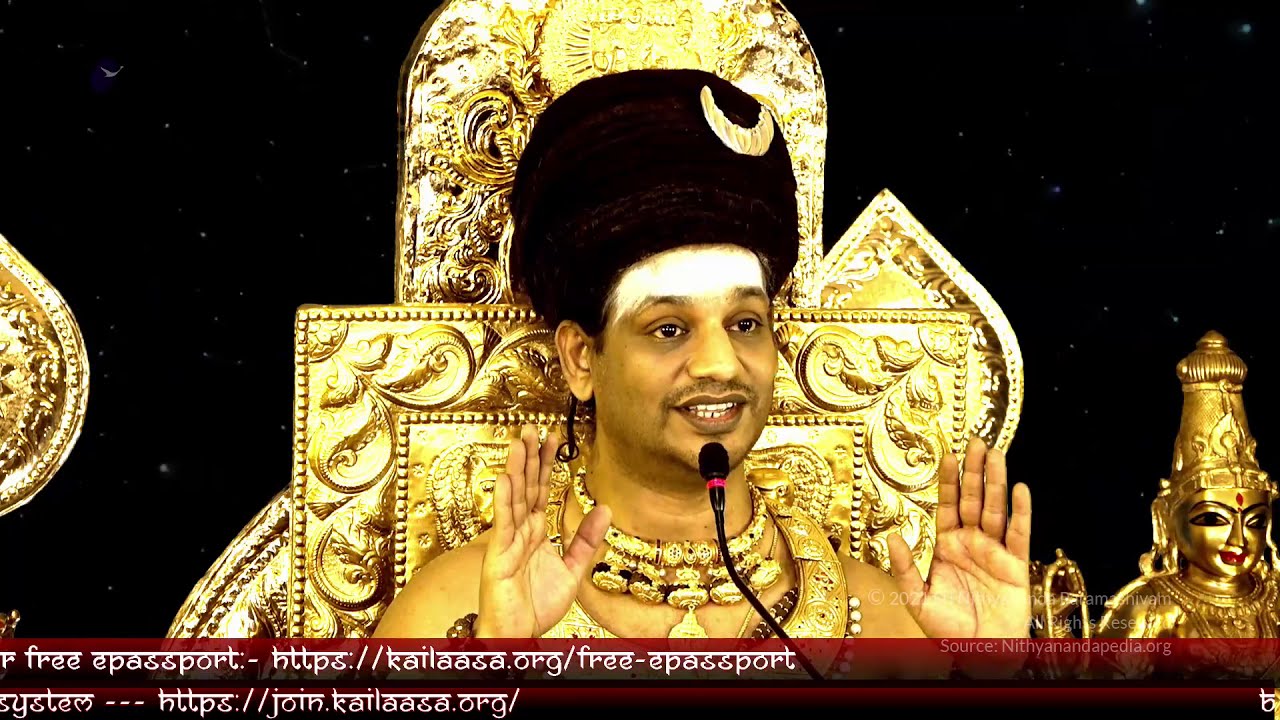Big Think
Back in 1988, Pixies asked the catchy question: “Where is my mind?”. Now, nearly 30 years later, UCLA psychiatry professor Daniel Siegel has a revolutionary answer. We’ve come to accept that the brain is the instrument that plays the mind, but Siegel takes it one step further by positing that your mind isn’t limited to the confines of your skull, or even the barrier of your skin anywhere in your body. Your mind is emergent – it’s beyond your physiology, and it exists in many different places at once. Daniel Siegel’s most recent book is Mind: A Journey to the Heart of Being Human (goo.gl/M8Cq6g).
Read more at BigThink.com: http://bigthink.com/videos/daniel-siegel-on-emergent-minds
Follow Big Think here:
YouTube: http://goo.gl/CPTsV5
Facebook: https://www.facebook.com/BigThinkdotcom
Twitter: https://twitter.com/bigthink
One aspect of the mind, beyond subjective experience, consciousness, maybe even information processing, these are facets of the mind that are good descriptions, let’s just put those to the side for now. This fourth facet of the mind has a definition, not just a description. This facet of the mind can be defined this way: the emergent self-organizing embodied and relational process that regulates the flow of energy and information. And if we take that apart step-by-step we can see that the system we’re talking about is called a complex system, that means it’s open to influences from outside of itself, it’s capable of being chaotic and it’s non-linear meaning small inputs have large and difficult to predict results. When you have those three characteristics math says that system is a complex system. And once we’re in the realm of complex systems we find that these complex systems have what are called emergent properties, the interaction of the elements of the system give rise to these properties that cannot be reduced to the singular elements that are interactions give rise to them.
The notion that complex systems have emergent properties is sometimes responded to by various scientists or even the general public as very confusing, sometimes even ridiculous. What I do in the book Mind is I actually put some quotes from some scientists who actually see emergence as not only a scientific property of complex systems but as a necessary way of understanding what it is that emergence, for example, why clouds have the beautiful ways that they unfold across the sky. That’s an emergent property of water molecules and air molecules that form of the clouds and the emergent property there is self-organization that’s determining how it unfolds. So when you come to the emergent property of self-organization then you also get people saying well that just doesn’t feel right, it doesn’t feel intuitive and I totally share that initial response. Self-organization has a strange reality where number one, as an emergent property it’s the interaction of the elements of the system, in this case energy and information flow that is giving rise to it that’s what an emergent property means. It can’t be reduced to the singular elements. But as a self-organizing emergent property it means it’s arising from something, that’s the emergent part, but then it’s turning back and regulating that from which it is arising, which is completely non-intuitive. That’s called a recursive feature. Recursive means it has a feedback loop, it a feedback system, it feeds back on itself. So even there as I’m speaking to you I’m doing an assessment of what’s going on I say feedbacks, no it’s feeds back. So, what that means is that arising from the system is self-organization, it then regulates the interaction of the elements of the system so that self-organization is then continuingly influencing itself, which is completely the counter intuitive.
So here’s the amazing thing, it’s a proven property of our universe that complex systems have this recursive property to it. It’s probably why people have not really gone to these emergent properties because especially self-organization it’s not intuitive. The second reason I think people haven’t gone here is because this definition of the mind as the emergent self-organizing embodied and relational process that regulates the flow of energy information is placing the mind in “two places at once”, within your body and between you and other people and you and the planet. So this irritates people because first of all many people point to their head when they talk about their mind and they place the mind inside the skull. Fine. But even if you kept the mind only inside the skin encased body you’d feel okay with the word embodied and many people do.
Source




3:15 This guy's an idiot. Has so many difficulties explaining even mildly complex concepts that I start to doubt he even understands them. We don't need to hear you say "feedback" twenty times
It's good to see this being talked about in scientific terms, as it helps show what's been known by many for millenium but where mind was referred to as "spirit" – ancient Greek pneuma and that some people's mind can even be visible extending outside the body as in an "aura" and seen depicted around the heads of so called saints and those thought to be deities from outer space (literal heavens). I remember seeing energy around my teachers heads when they were giving public meetings and that energy even seemed to grow to hover like a haze over the audience. I saw that again at another meeting and also saw it around certain students who were giving meetings thereafter. I had never had that experience before or since that time years ago but there was a few months where I saw different types of spirits – minds – that were no longer attached to and/or emanating from a physical body. Then there is another type of mind containing subtle "wind like" density physical object called a Soul that contains a certain quality of mind. This is the area of metaphysics which is a science of the mind.
One can tell that the mind is connected but separate from the brain by witnessing how people with damaged brains sometimes can establish new pathways to re-learn things that were lost by the damage. That would indicate the complexity of the system and the recursive aspect as the mind is searching for new pathways to stimulate the neurons in another part of the brain to generate the results that were lost by damage. I think of it as the brain is the hardware and the mind is the software. The software is initialized into the hardware at birth and the software, as in OOPS computer programming contains both it's "code" section and data section it uses but that grows as well. Another way to look at it is that every cell has it's genome in it's nucleus. The strands of DNA can be thought of as a database. The histones like a cpu and the organ that is made up of many hair like parts the antenna for communication and power. So the mind is then an highly organized, yet fluent electromagnetic field that though is generated via the cellular system of the genes grows beyond it's own cellular physical boundaries. Like so many things this was known thousands of years ago and was spoken about as "spirit" that still exists against the earth's electromagnetic field even after the hardware has "died".
Try this chaotic game to improve creativity, EI and Working Memory
https://youtu.be/RK6R9oC0s9A
SMARTKITE®
Energy is consciousness
Maybe should've Mentioned before but i sampled this…cause i thought this bit was awesome. 😀 https://soundcloud.com/untercale/no-chorus-just-playin
What I don't understand – there's no debate that humans taking measurements, or anything else measuring for that matter, causes wave function collapse as the two systems entangle, but the idea that our senses, emotions, or pilot light of consciousness works on field dynamics or entanglement? How dare you bring that woo-woo hippy rubbish! This just tells me how much cultural baggage is slowing science down right now.
The human body is the vessel for our mind which takes physical form through this vessel. We are our mind at our very core experiencing life via our physical form on earth. Our brain is the control station from which our mind operates the body. The task of the individual is to use the vessel to discover the ultimate existence for the mind to rest. In other words have answers for all the minds questions. Rather than knowing every minor detail of life, have an ultimate knowledge covering all questions. When this ultimate or perfect life is discovered whats left is to enjoy.
This is what Alan Watts was talking about back in the 50's and 60's.
90 people dont get counter intuitive ideas.
This is very important stuff – ie. both supervenience and downward organization.
fuck
Maybe if Neil de Grasse Tyson explained it I would understand. He knows how to dumb science down for the layman.
It looks like he has a piece of candy in his right cheek and is sucking on it!
I disagree that people find self organisation to be unintuitive. We obviously self organise even if we only consider the level of conscious attention. Our bodies are obviously self organised, the organs strip down food and turn it into usable energy. Our bodies are a continuous pattern of self organisation until the pattern ultimate changes i.e we die.
Nice pseudoscience bro.
The collective actions of billions of cells (which themselves self-regulate and process information in a rudimentary way) gives rise to a singular reality-modeling and body-guiding process — which maintains a coherent self-image connected to physical self-preservation, social instinct, reproduction, security, nostalgia, experience, attachments, and so on. That it should feel and contain all the richness that it does for the experiencer is a bonus.
if you put this shit on mute an watch it itll make sence ?
The definition of mind I find insufficient. It's a definition of any open self-organized complex system.
An enriching discussion; I myself, though, have always felt it's weird that people have all this trouble thinking holistically, when it can solve so many things elegantly. Take the Chinese room argument, for instance: where is the mind? A guy, the ideogram charts and the room taken separetely cannot speak Chinese, but all put together… >_> To think in such a way has also important social consequences: you can bet money that fucking the climate and social castes is only fucking ourselves, in the long run.
…And are we talking noosphere, near the end? If you want to think each individual as a sort of 'node' in the net because an organism is an open system, you can pretty much extend this to the rest of the Universe. Even though there is exchange of molecules back and forth between us, information processing is local–otherwise, I'd experience myself as a starving child in Africa at this instant, or something. Details 😉
This guy has no idea what he's talking about.
Bleh. Just another model that collapses in on itself. I want Truth, not another system.
I am so sick and tired of buzzword spewing idiots thinking they're saying something novel or interesting when repeating worn out academic cliches about the mind/consciousness. First of all, you can't just ASSERT that downward causation exists and is true. It is a deep philosophical question that does not have a final answer, and many people believe that downward causation (or strong emergence) is simply overdetermined. It is a circular argument to say: a bunch of things interact to make a new property which is not reducible to things that are interacting – it is a useless point until you can prove such strong emergentism actually exists in some observable way (nothing has proven it so far).
But even if you *didn't* fail to use emergence in a convincing way, you are still explaining exactly nothing with all this incoherent logorrhea about "energy and information flow". When people talk about the mind they *ALREADY KNOW* that it's complex and involves energy and information "flow" (processing, etc.). You learn that in high school biology. The real, deep questions about the mind and consciousness involve:
1) the nature of qualia/first person experience (philosophy)
2) answering specific functional questions about different parts of the brain so we can make progress in cognitive/neuroscience
3) machine/artificial intelligence/cognition and it's associated philosophy
If you don't have anything meaningful to say about these topics (you don't): STOP WASTING OUR TIME. WE ARE BEGGING YOU. STOP.
I like this guy, he talks nice and explains great
Wow, this is stunning!!
Seems like a complicated way of saying that everything is connected to everything else. Seems like a sensible enough scientific position but the woo woo comes in when people start charging you to rearrange your furniture so the energy of the universe flows more easily into your bank account.
"completely counter-intuitive", he says it 5 times to make them out to be magic. Self-regulating, feedback-systems – call them "complex or emerging" – are totally intuitive, that's nature for you.
Must be a Jedi with his hand waving…or he just got done watching Doctor Strange.
I'd rather see 'A scientific' rather than 'An
He's a psychiatrist trying to think like a physicist. I mean, he gets a few things wrong about emergent properties, but eh close enough.
I with more of them did this.
It's neat to abstract things this way but I worry the nouns/verbs will be confused with what they represent. You need a mathematical model to represent this accurately.
Best explanation so far!!!!!!!!!!
This is partially true but nothing new. The emergent property view is a category of model and not a specific explanation. It's like saying that weather is an emergent property of air and water molecules undergoing temperature change. Or that investment bubbles are an emergent property of the stock market. That's nice, but it doesn't really explain hurricanes or market crashes. As they say at the end of every science report, "more research is needed."
If you would like more fundamental explanations of what the mind and or consciousness is and how it arises then read The Future of the Mind. Enjoy!
This video needs a good example for the 'eureka' moment at the end. Im still not 100% sure what is meant.
"which is COMPLETELY counterintuitive"…. well.. No. A big feedback system. Wow. No shit.
I type this as he keeps talking and it constantly think "wtf is this". This is not a good Video, Sorry
Someone is high as fuck.
I started the video and it ended just like that. Nothing in between. I didn't understand a single thing. This video requires some background knowledge I guess.
He Literally didnt say anything. I was going to wait until he explained how the mind can be within and "between" things due to it being related to the transfer of information and energy. But the moment never arrived. He just kept talking and talking without actually saying anything.
Does the emperor have no clothes?
From what I understood, the mind is a complex Program (easy to understand than complex system) with a lot of variables (sensory inputs, body chemistry, neural networks, etc.) Which gives rise to energy information flow. This system brings out an emergent result which again gets fed back into the system thus continuously influencing itself (ie. understanding, learning, evolving). In essence this whole system is NOT intuitive.
Now this system also has another outside the body variable called relational properties (read stimulus), which makes the assumed mind and the world outside, one system (is it consciousness? I don't know).
This variable creates conflict or confusion in the Program (our mind) by making the feedback work harder creating stress (again an emergent property). This is probably is the reason why meditation helps us to reduce the input flow and stabilise the system.
And I can't help but get a philosophical kick here by E E Cummings, " To be nobody but yourself in a world trying it's best to make you somebody else is the hardest battle you are ever going to fight. Never stop fighting."
However, in my opinion that conflict is necessary and always needs to be examined ( read feedback loop) ie. I could be wrong here in my interpretation.
why tf am i subbed to this channel
The sum of the assembled whole is greater than the sum of the individual parts.